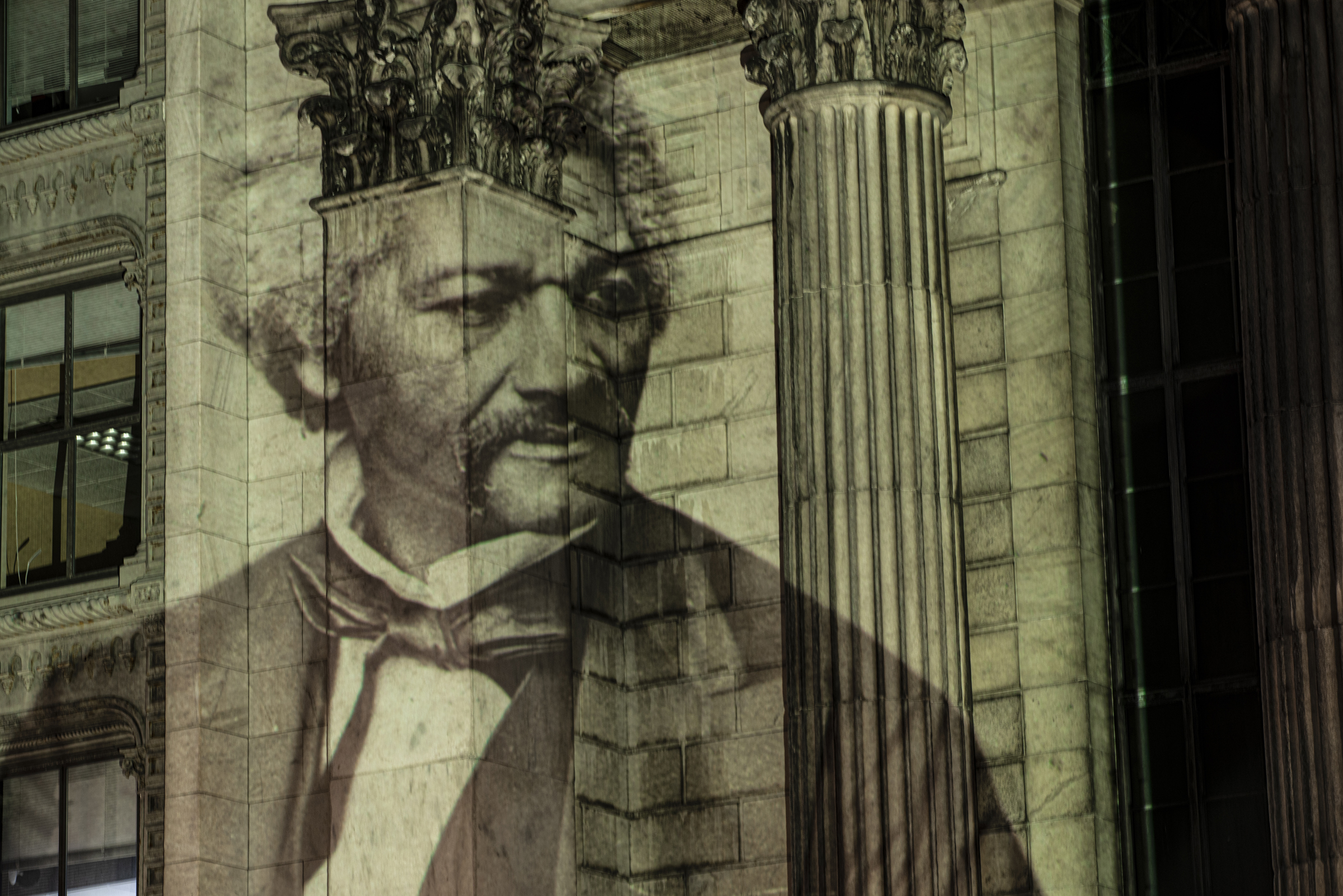
Corinthian Hall Site &
Frederick Douglass
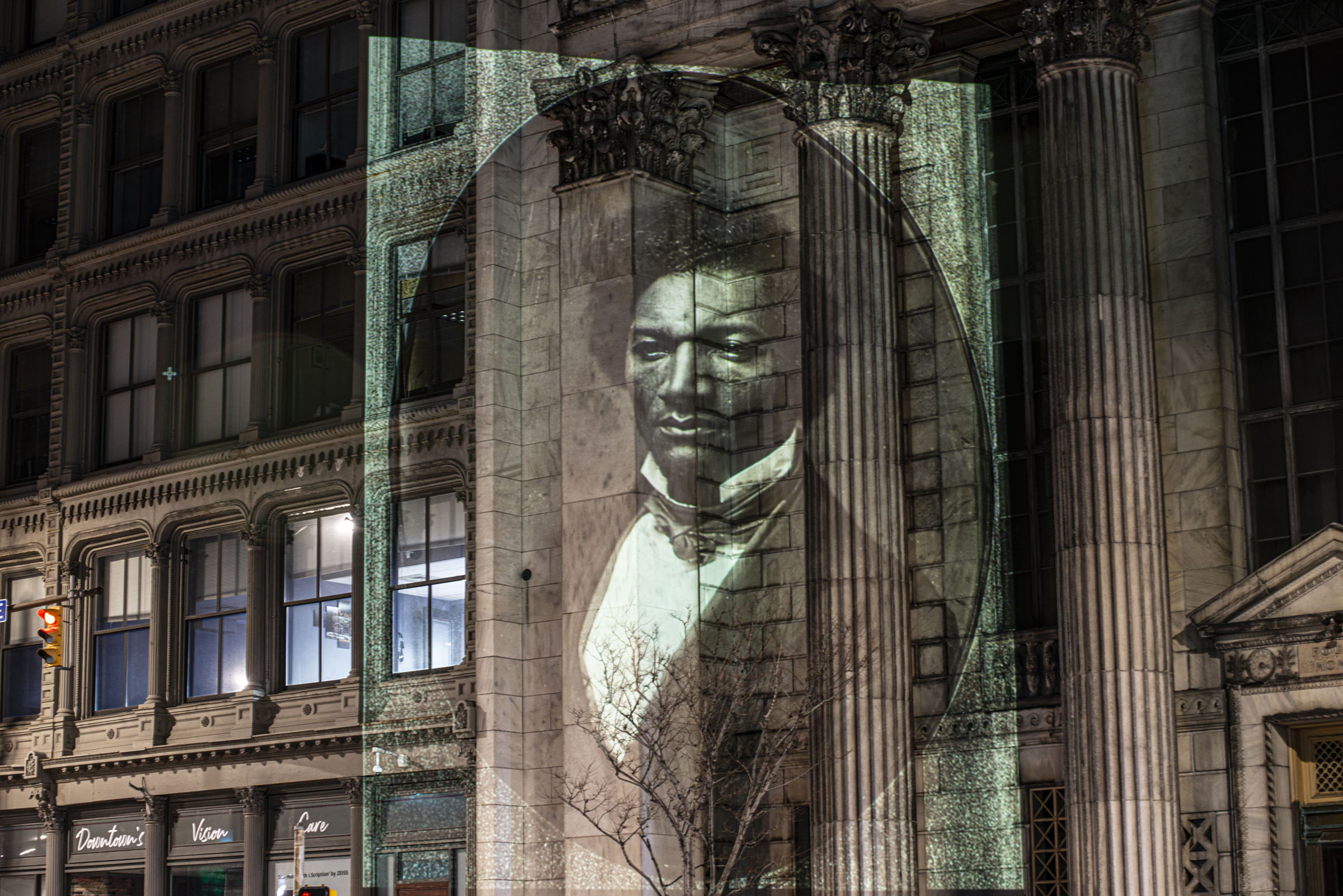
Bernard Alexander on Frederick Douglass
Frederick Douglass, a central figure in the abolitionist movement, was born into bondage in 1817 in Tuckahoe, Talbot County, Maryland. While the month and day of his birth are uncertain, he later opted to celebrate his birthday on February 14. His mother, Harriet Bailey, was a slave, and his father, Aaron Anthony, was a white man rumored to be his master. Born Frederick Augustus Washington Baily, after successfully escaping slavery in 1838, he changed his last name to Douglass, paying homage to a narrative poem by Sir Walter Scott titled “The Lady of the Lake.” Frederick Douglass was 78 when he passed away on February 20, 1895, in Washington, D.C. Today his body rests in Rochester’s Mt. Hope Cemetery.
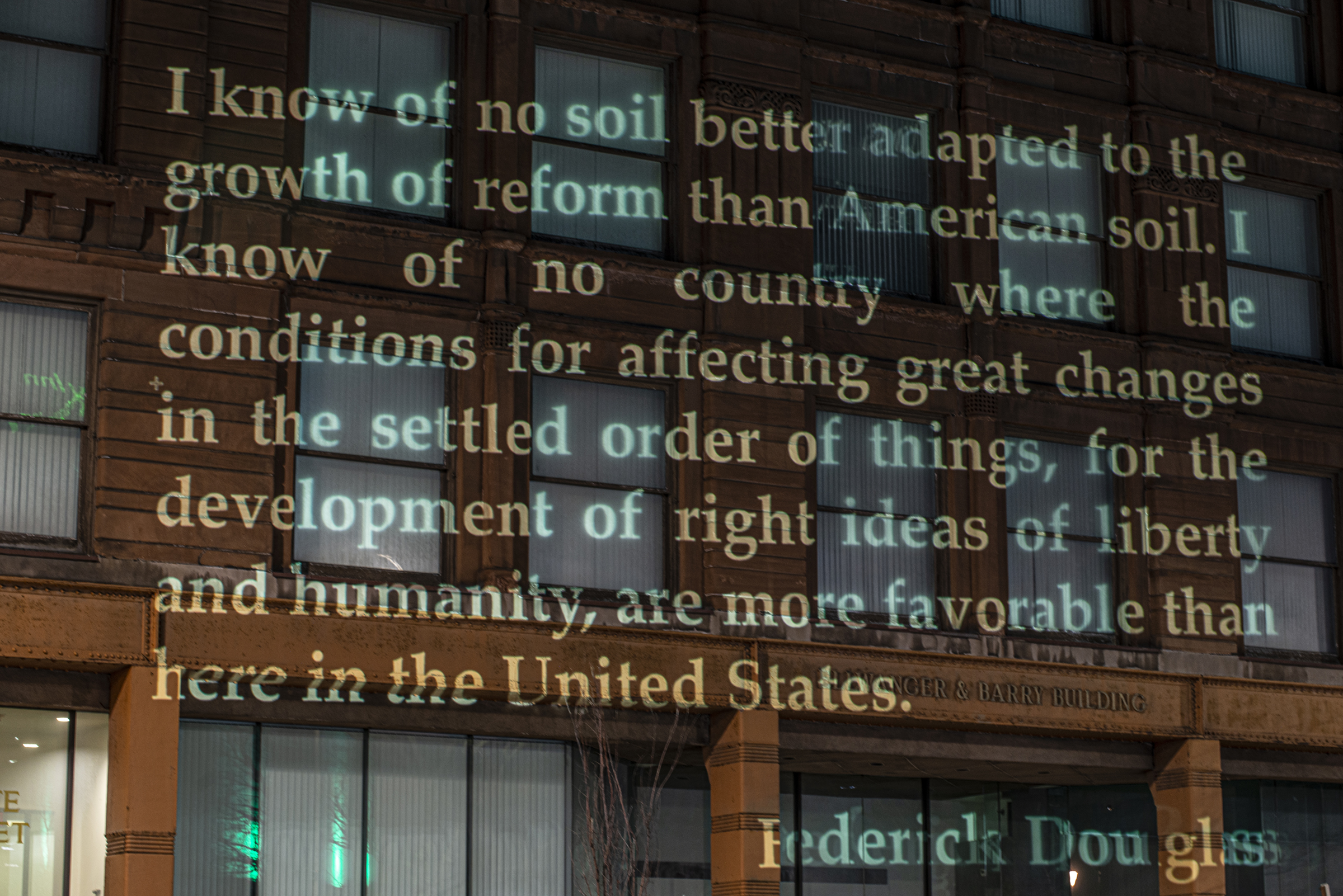
An avid proponent for abolishing slavery, Douglass began operating as a spokesperson shortly after escaping, giving many speeches about his life and experiences for William Lloyd Garrison’s American Anti-Slavery Society. As a man who spoke very eloquently, few people believed that he had been a slave. To refute this, he wrote and published his first autobiography, The Narrative, which brought him fame in the United States and abroad, and provided him the funds required to purchase his freedom.
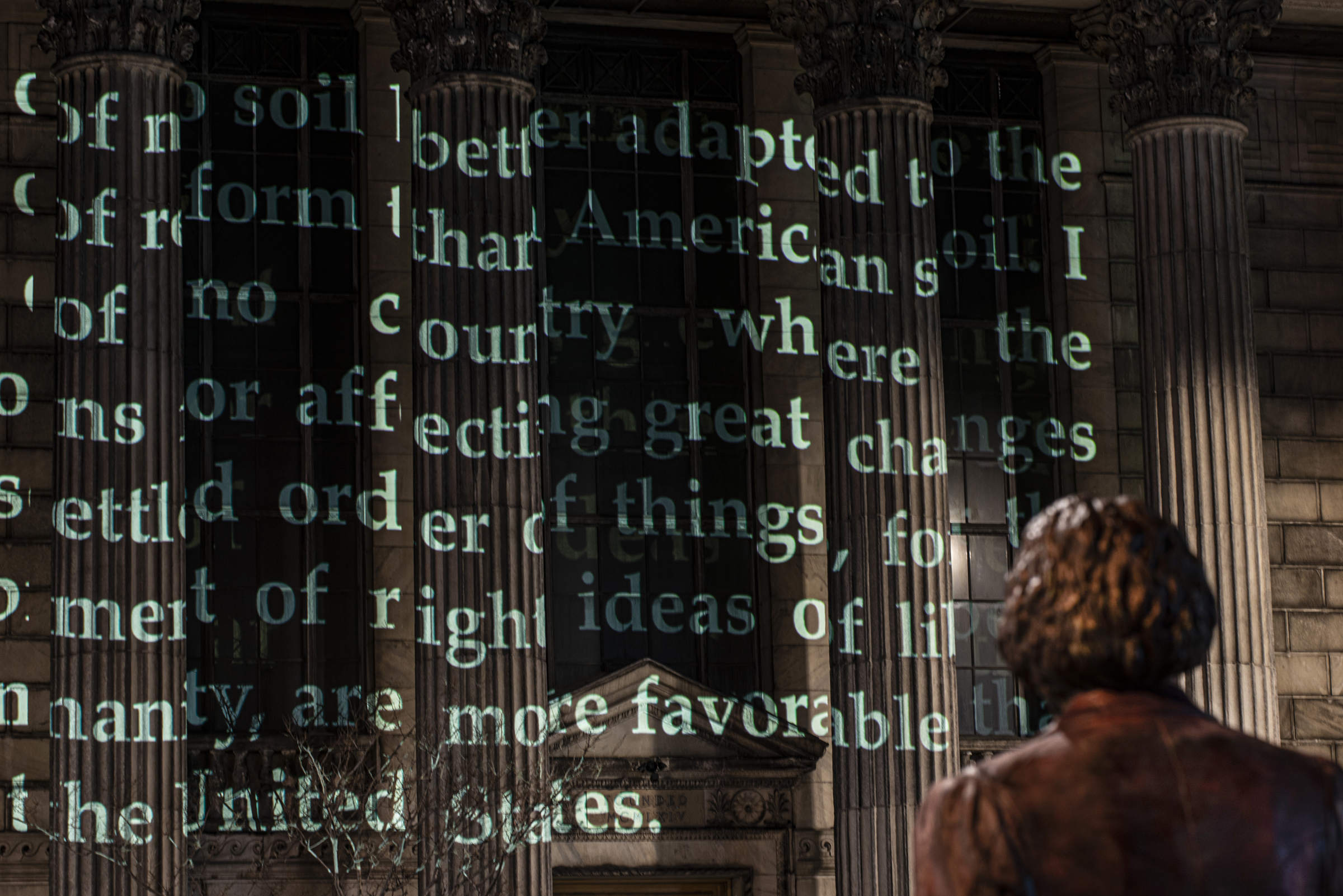
Douglass called Rochester home from 1847 to 1872. He lived in Rochester longer than anywhere else in his life. Here he published his famous abolitionist newspaper, The North Star, starting on December 3, 1847. It not only denounced slavery but also fought for the emancipation of women and other oppressed minority groups. In May of 1857, Frederick Douglass delivered a powerful speech in Rochester directed at the Dred Scott decision. In the Dred Scott case, the Supreme Court ruled slaves taken to free areas did not become free, and African Americans were not and could never be citizens of the United States. Douglass says, “To decide against this right in the person of Dred Scott, or the humblest and most whip-scarred bondman in the land, is to decide against God. It is an open rebellion against God’s government. It is an attempt to undo what God has done, to blot out the broad distinction instituted by the All-wise between men and things, and to change the image and superscription of the ever-living God into a speechless piece of merchandise.”
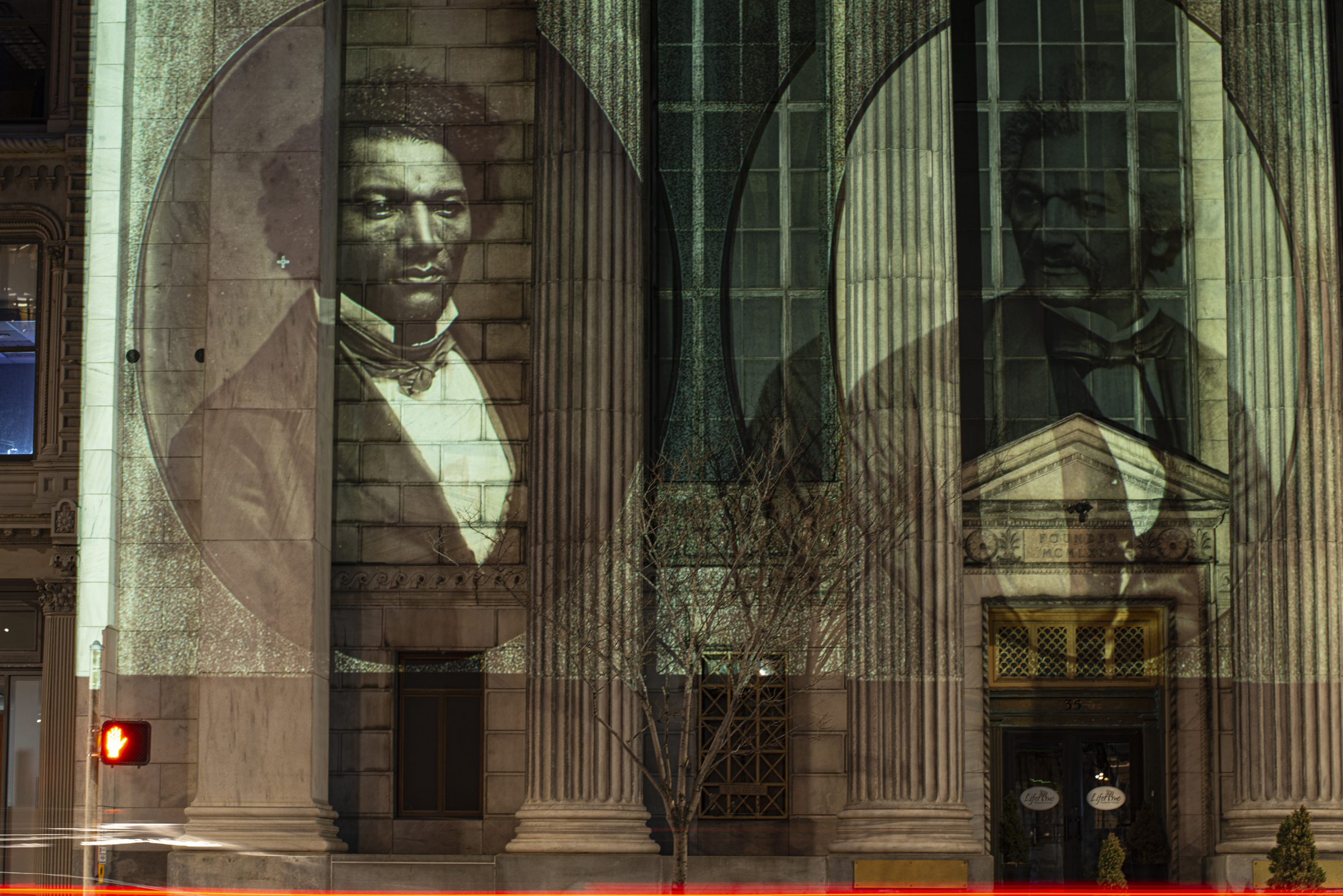
Frederick Douglass fought for all African Americans’ freedom from the evils of slavery and the rights owed to all human beings. Douglass believed that every man under God was equal and that we must treat each with dignity and respect while rooting out the persistent force of racism. I think that if Douglass were alive today, he would take notice of the great division and strife we face both nationally and within our community and remind us that we are all equal under the Declaration of Independence and Constitution. In his Dred Scott speech, Douglass says, “I know of no soil better adapted to the growth of reform than American soil. I know of no country where the conditions for affecting great changes in the settled order of things, for the development of right ideas of liberty and humanity, are more favorable than here in the United States.” No person is born lesser than anyone else. Douglass would bring us together as a community and teach the lesson that cooperation and working together can accomplish anything.
Bibliography & Further Readings
